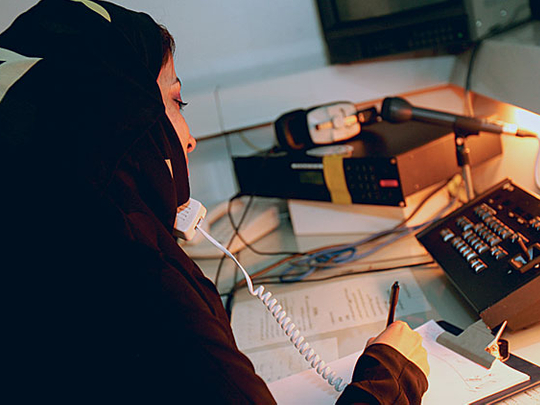
A large number of young Emirati women will not seek employment after completing their degrees. But is this an issue that needs rectifying?
Figures have shown that 25 per cent of female students graduating from Zayed University (ZU) do not enter the workforce, said Bryan Gilroy, Assistant Provost, ZU.
Similarly, the Higher Colleges of Technology (HCT) reported that of its 12,000 female students about 30 per cent of graduates do not go on to seek employment while approximately 90 per cent of its 6,000 men will, said HCT Provost and Chief Academic Officer Dr Mark Drummond.
This percentage may appear to be a waste of federal expenditure. However, some argue the education of these Emirati women still contributes to the development of UAE society by turning out better mothers.
"Many students at ZU are first-generation students; many of their parents never went to university," said Gilroy.
"However, the students who won't go out to work are still contributing to the development of the UAE society. They are better-educated mothers and therefore have higher expectations for their children," he added.
Fanning the flame
Albeit a minority, some Emirati girls still find their desire to pursue a career is met with objection from their families or spouses. For some women seeking a higher education itself is a challenge.
"Fortunately we don't have as many of those situations as when the HCTs first opened," said Dr Howard Reed, Director of Dubai Women's College (DWC). He added that DWC alone now has 4,000 working graduates, thus illustrating the dwindling number of cases.
"The first batch of students had to worry if it was going to happen for them — whether they would be allowed to study, if they would even receive job offers and be able to compete with expatriates," said Reed.
"Those women had a bigger flame burning in their hearts because they had more they wanted to accomplish… and this generation's challenge is to keep that fire burning because expectations are growing."
However, some girls still face restrictions as to the kind of jobs they can take up as they are only permitted to work in women-only environments, said Mervat Al Tamimi, student counsellor at the Emirates College for Advanced Education (ECAE) in Abu Dhabi. The most popular among these sectors is teaching.
"I've had a lot of students complain about problems they face with parents and husbands," said Al Tamimi. "Some husbands don't let them come to college regularly because of home responsibilities. So they struggle with their husbands just to come to school and study... ."
Gradual change
Al Tamimi said of the 300 students enrolled in ECAE this year she has come across six such cases.
"If the man himself is not educated and doesn't hold a bachelor's degree he finds it difficult to accept his wife to be more educated than him," she said. "I find the educated husbands push their wives."
"We no longer live in a community where men support women 100 per cent," said Fadwa Lkorchy, Student Counsellor at Sharjah Women's College.
"Of the 1,850 ladies enrolled here at least 20 per cent face such problems of restriction. Some families demand they only work in Sharjah; others reject the idea completely."
Yet in the HCTs all students are required to get work experience. "We have a limited number of women-only places we can offer students, maybe at certain banks for example, but most employers don't offer that," said said Catherine Mayerlen, Superviser of Academic Programme Support at Abu Dhabi Women's College.
In cases where the girls are restricted to work in women-only environments they take up employment at women's colleges, places permitting, Mayerlen added.
HCT provost Drummond suggests that the UAE should also take into account cultural restrictions and that the lack of opportunites in these areas is a national issue.
If employment clusters are established in remote areas, women graduates from these areas could easily work there with little or no family objections.
Flirting with danger
Fatima Ali (not her real name) is the first girl in her family to get a job. As the youngest of three girls she graduated from Al Ain Women's College last year and took up employment in the college's administration.
"The family rule is to work in a place with girls, where the customers are mostly ladies. This is the most important rule because they [my family] don't want me to mix with men," said Fatima.
She said the reasons for this mentality are cultural, particularly given the damaging accusations often made by UAE men themselves which could ultimately affect a girl's reputation.
"It is better for me to stay home rather than go to these places [mixed work environments] and hear the gossip," said Fatima.
"I think it's OK for a girl to work after graduation," said Sultan Al Kuwaiti, a student at Al Ain Men's College. "However, I can't support working in mixed environments because of the mughazala (Arabic for ‘flirting'), and how men and women hit on each other in some organisations."
Yet as the cost of living rises and single-income families become unsustainable, Fatima believes her family's mentality is slowly changing.
"They are changing their mindsets because I'm now more independent rather than taking money from them," she said.
Explaining how she is now in charge of organising her family's finances, Fatima said: "I am more confident and they like that because they feel they can now depend on me to handle responsibility."
- With inputs from Amelia Naidoo, Campus Notes Editor


